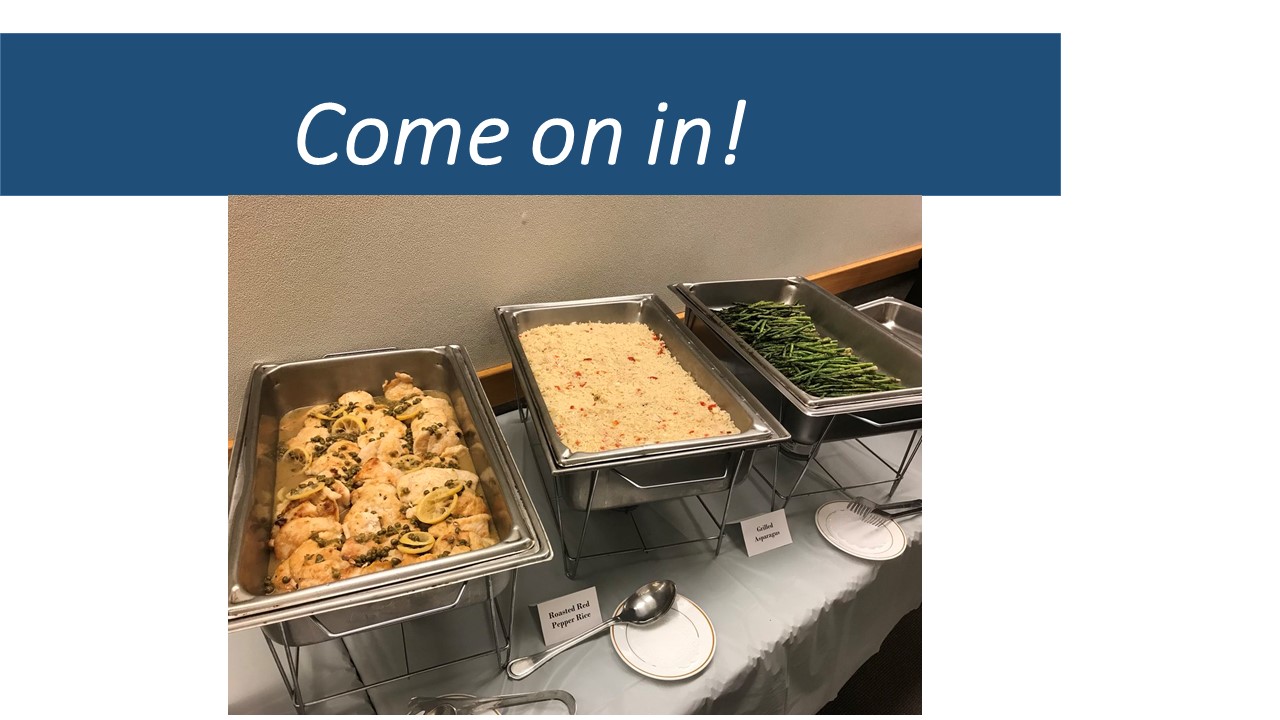
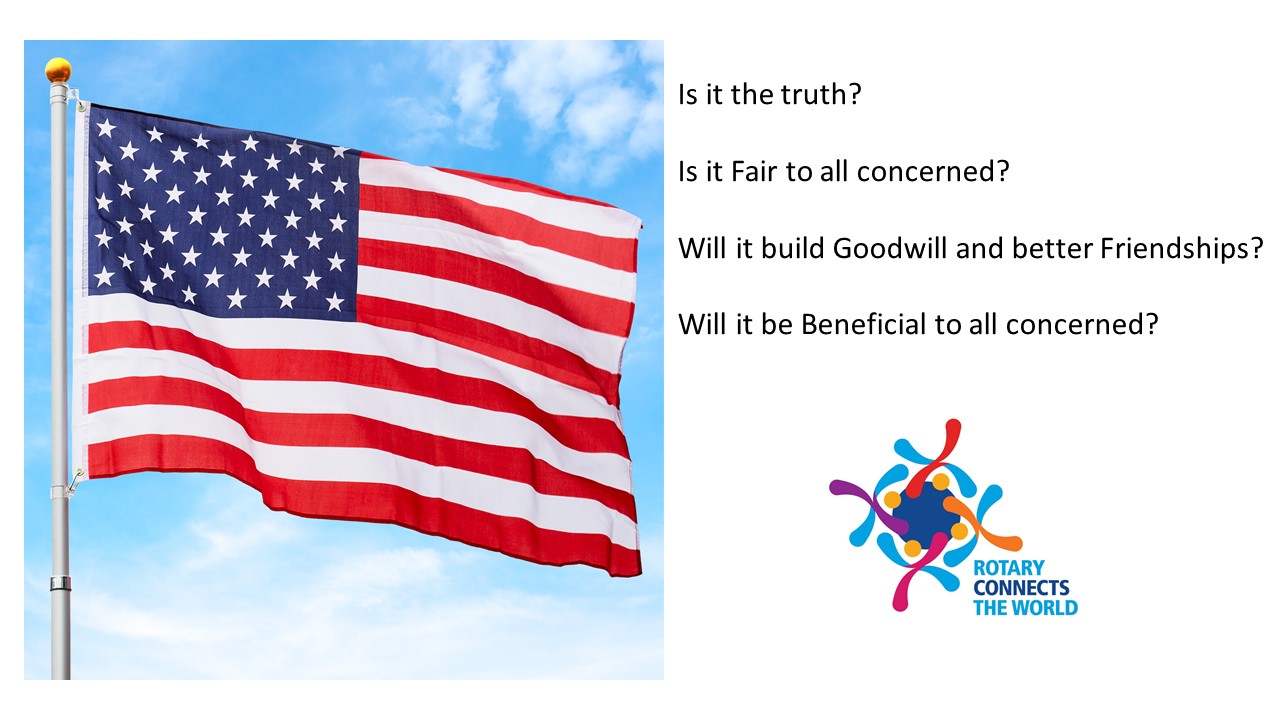
Lady Grizzly (Colette Lay) unmuted us into session. We paid due reverence to RI President Mark Daniel Maloney, who reminds us that Rotary connects the world. Glen Weber, veterinarian of distinction, was our Greeter. He led the Salute and welcoming ritual. His Thought for The Day was a smorgasbord of good ideas. My favorite was “On an old man’s shirt was written a sentence ‘I am not 80 years old; I am sweet 16 with 64 years job experience.’” I can relate.
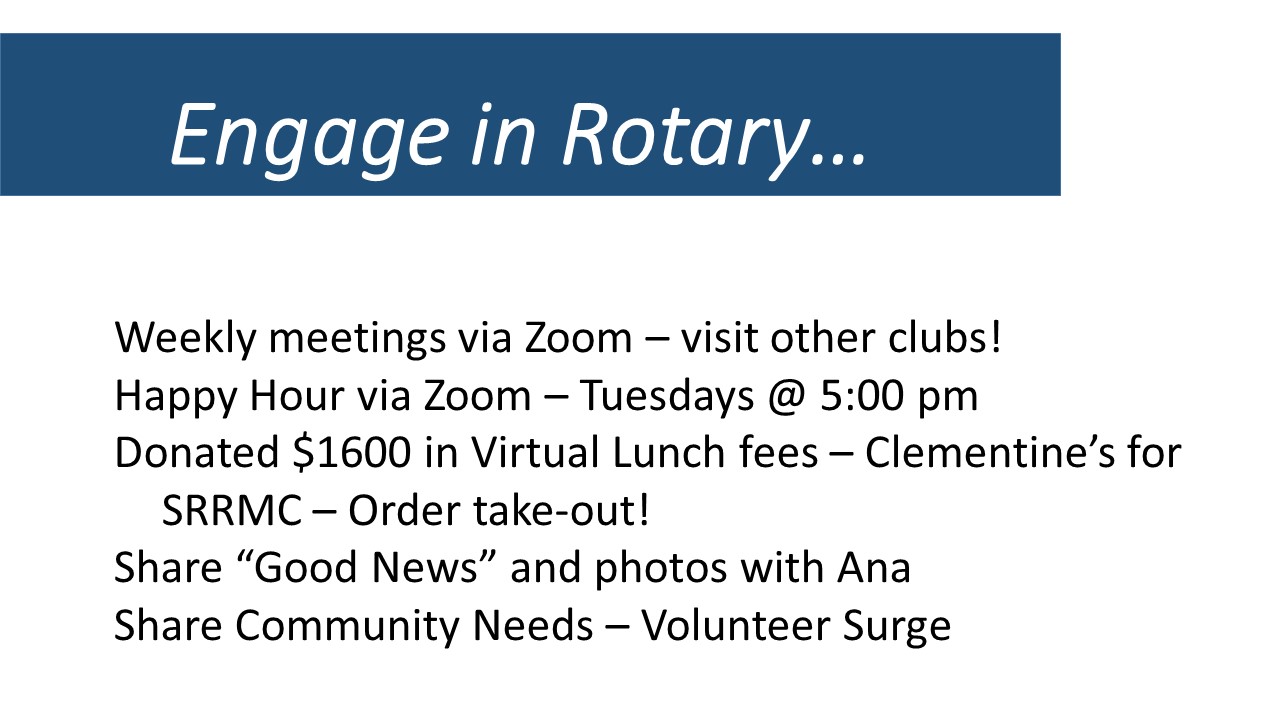
Shannon Lee from Cal High Interact shared with us some of the details of their on-going activities during the shut-down. One of the most interesting was a contest called Free Rice, the process for which was beyond the capacity of this correspondent to follow. President Colette announced that our recent effort raised $1600 to provide meals for workers at the San Ramon Medical Center provided by Clementine’s, a win-win for the community. She requested that we send photos of our shelter activities to Ana Dominguez. If we are aware of any community activities, be sure to let Colette know. Also Rotary is providing on-line training for service; check with Colette for more details.
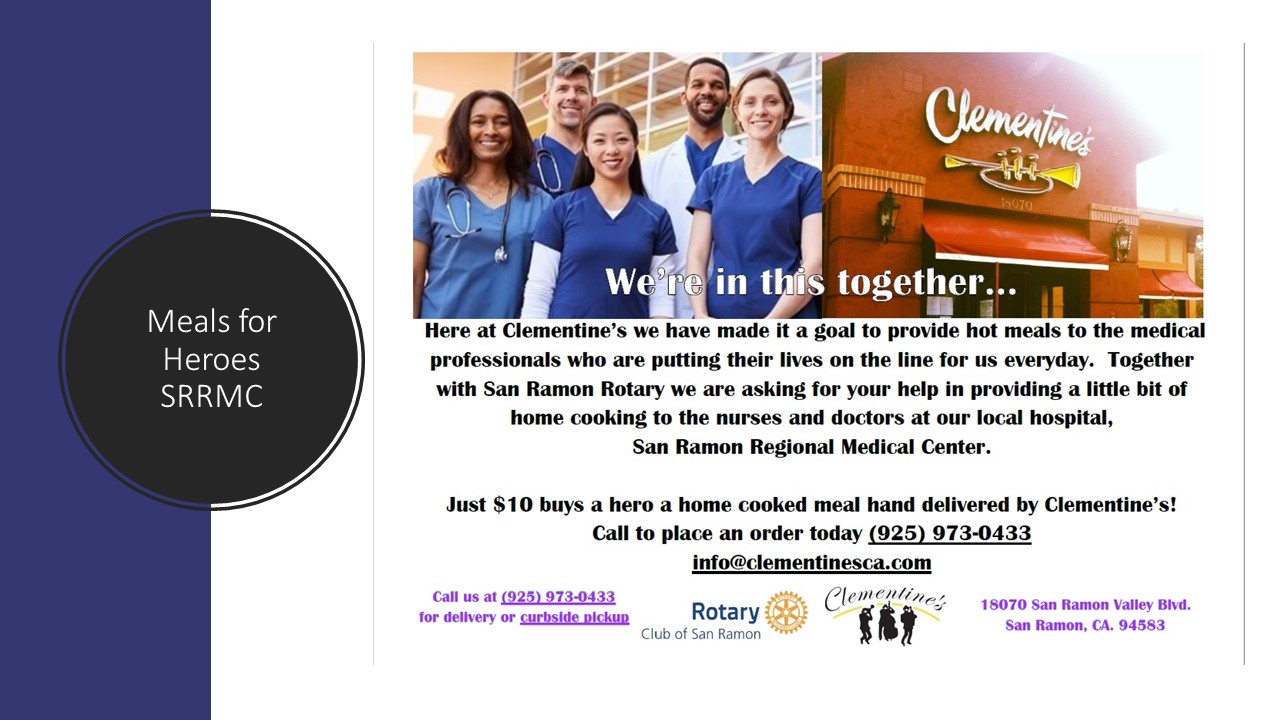
The Club board has voted to offer $1000 in matching funds for the local food banks; whatever we donate individually will be matched up to $1000 by the club. Melanie Emig tells us the Country Club hopes to reopen the golf course soon. (Watch for slices and hooks!) She also said that the Educator of the Year will take place on May 21; principals are in the process of selecting their choices. Don Jones has a birthday coming up soon; send him a card.
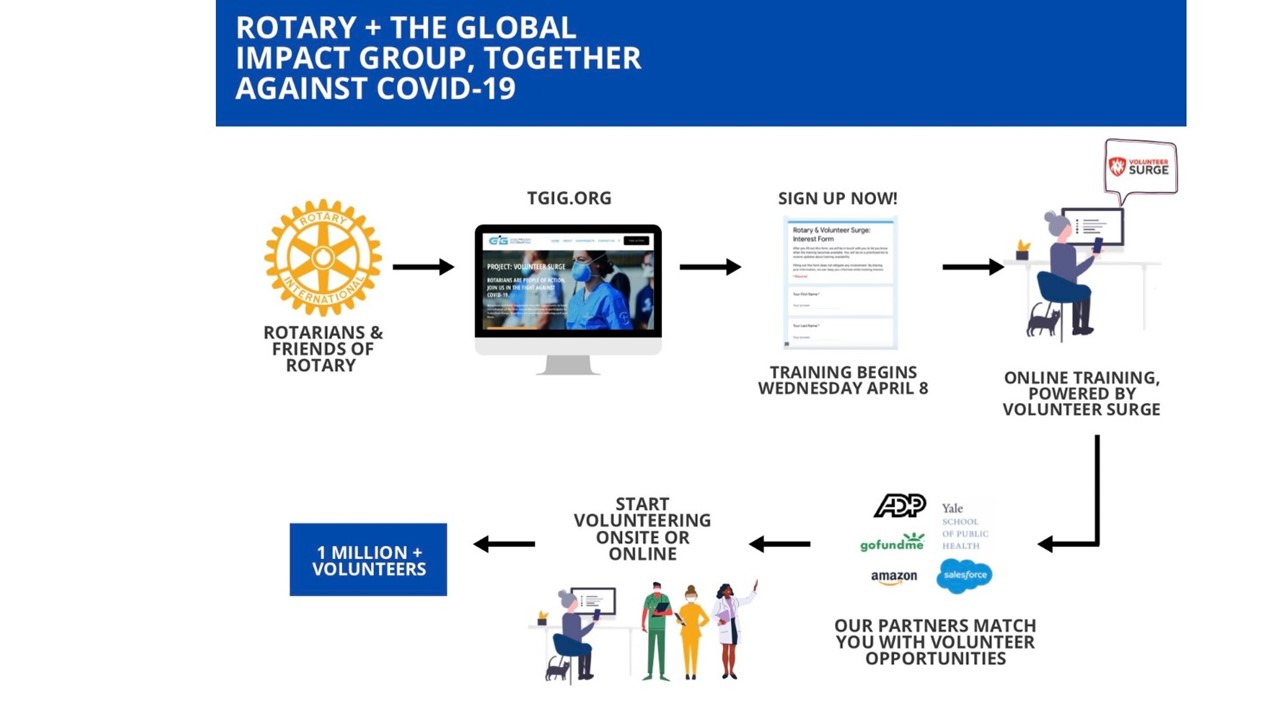
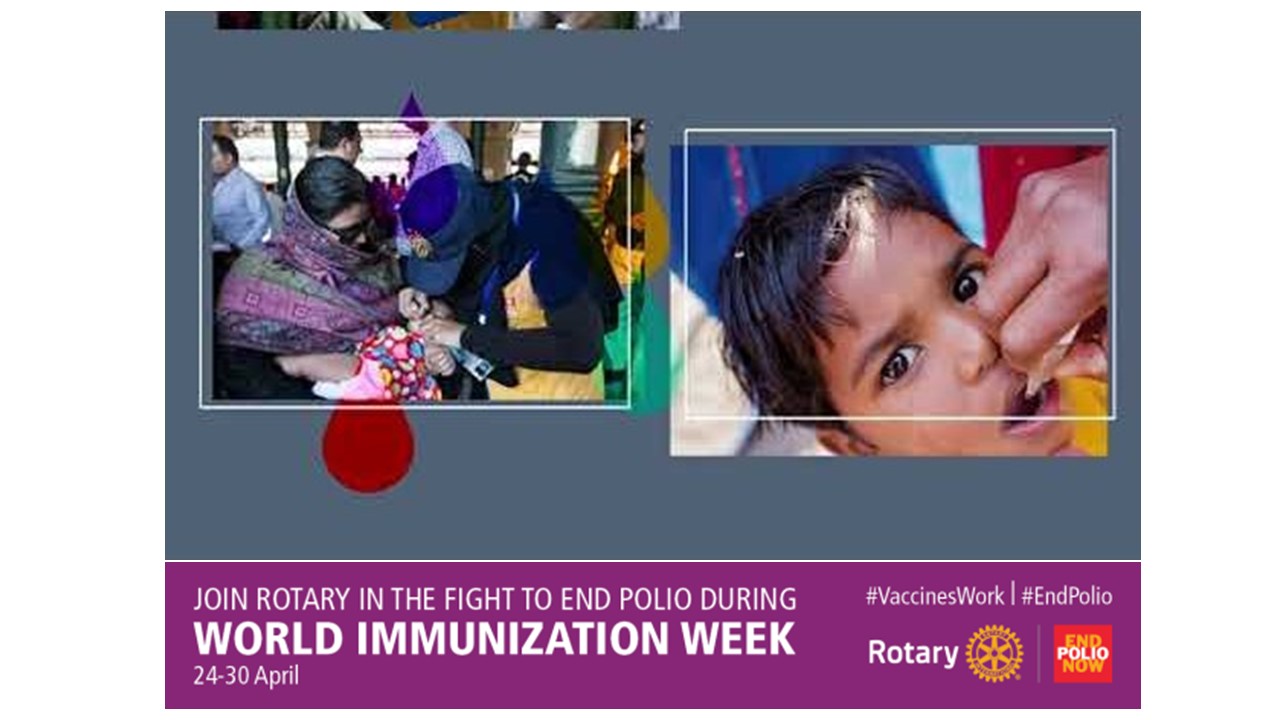
Then we had a special comedy interlude as President Lay attempted to obtain the audio for an inspirational Rotary video. The multiple suggestions and advice reminded this correspondent of the old times when our original technocrat, Mark V. ,used to control the airwaves.

Colette introduced us to Bill Tobin, an active Rotarian and an official with Shelter Box International. He explained how this concept of disaster relief began as a small-scale project for the Rotary Club in Helston-Lizard in Cornwall, UK twenty years ago. It proved wildly popular and morphed into a world-wide phenomenon. The 40-gallon plastic box provides a rugged tent and tarps for shelter, small stove for heat, basic tools, water filter, utensils and rope. The contents can be modified to suit each disaster situation. Over the last 20 years Shelter Box has responded to over 300 disaster situations, affecting about 1.5 million people.
Each year there are about 17 million people who are affected by natural disasters, such as floods, earthquakes and storms. On the other had about 70 million are victims of war and violence. Most of these are internal refugees within their countries; they are for the most part not interested in emigrating elsewhere.
Some of the memorable deployments of shelter boxes include the Indonesian tsunami of 2004, the Haitian earthquake of 2010 and the Syrian civil war in 2012. The organization does send out response teams of volunteers, including many Rotarians, who spend up to a year in the field. Much of the focus of the organization is currently on the Lake Chad basin in Central Africa which is devastated by prolonged drought and the threat of Boko Haram terrorists. In addition to fund-raising by Rotary clubs, Shelter Box seeks contribution of storage space in warehouses. In the field the group depends on local Rotary clubs for translation service and transportation. Shelter Box awards Hero status to clubs which raise money.
The organization works with local groups, such as Habitat for Humanity. It is not officially connected with Rotary International, but Rotary remains a vital part of its mission. The group has been nominated twice for a Nobel Peace Prizes, and has earned Four Stars at Charity Navigator. Mike Conklin suggested that Bill Tobin investigate partnership with Spirit of America, a group Mike works with of former military members. Lourdes Ylagan asked about work in Philippines, where the group has deployed 27 times, and if the tents remained with the recipients. Dennis Harvey asked why no country had undertaken this kind of work. Bill said that governments tended to be reactive rather than proactive; they wait for the disaster before they do anything.

A fascinating program. Next week the Greeter is Hermann Welm, Rotary’s Mister Sunshine.

